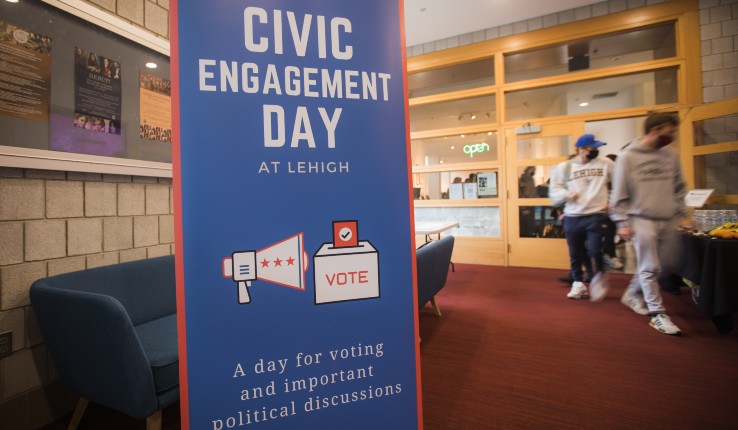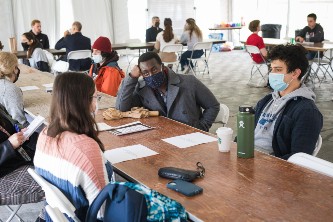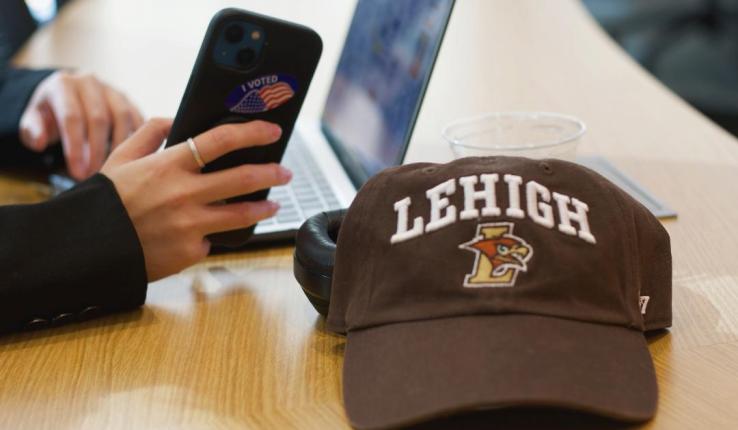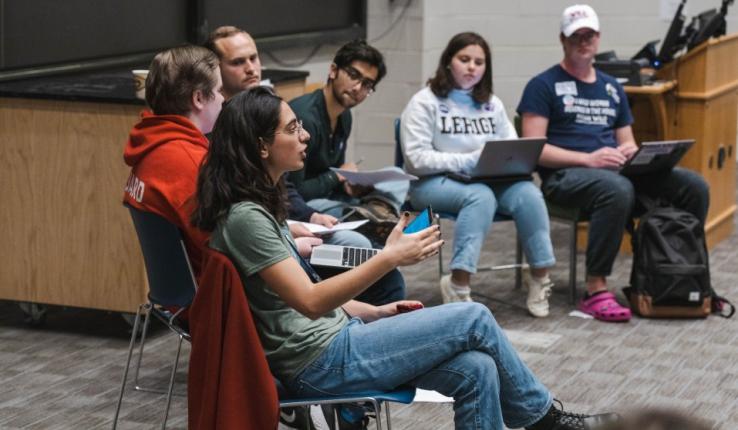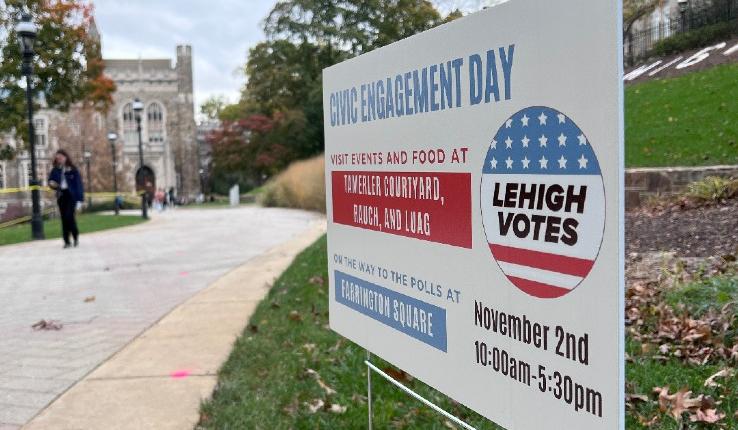The idea for a day off from classes to promote civic engagement started last year with David Owolabi ’20, who began a petition to cancel classes in order to ensure students have a chance to vote. The petition received more than 1,600 signatures.
“Civic Engagement Day is an initiative that began with students, and it is now a reality thanks to their thoughtful leadership and willingness to do the work needed to bring this to fruition," said Nathan Urban, provost and senior vice president for academic affairs. "Today’s events invite members of the Lehigh community to participate in local elections, such as the important mayoral elections in Bethlehem and Allentown. But it is about more than elections. It is an opportunity to learn about and engage in conversations and work around important issues that affect our communities. I commend the students who have organized this important day and all those who participate in it.”
There were multiple groups that worked together to make the day a reality, said Declan Coster ’23, a member of the Student Senate. In addition to the Student Senate, they included the Student Political Action Coalition, Center for Community Engagement, Office of Student Engagement, Community Service Office and Lehigh University Art Galleries, where many of Tuesday’s events were held.
“As students at a rigorous academic institution, almost every waking hour of our day is affected by our academics. It is vital that students have Election Day off to have the ability to vote,” Coster said. “A Lehigh education prepares people to become change-makers and positive forces in the world, and therefore, it is imperative that Lehigh encourage students to vote for change while they are in Bethlehem.”
Students were also encouraged to reach out to their local representatives. A station was set up in the Lehigh University Art Galleries with form letters, postage and envelopes students could use to write to their local representatives about topics important to them. Some suggestions included education, agriculture, elder care and civil rights.
“For student development, this is an amazing event,” said Gabbie Scherff, a graduate student intern from Kutztown University who is studying student affairs in higher education. “Growing up, civic engagement and how to be involved in your community was never talked about, but it’s part of a well-rounded education.”
There was a full day of events from 10 a.m. to 4 p.m. It kicked off with a lively discussion on gun control between college Republicans and Democrats. It also included a presentation on school boards featuring Political Science Professor Karen Pooley and Sociology Chair and Professor Ziad Munson, both local school board members. The discussion was added in light of the growing hostility that’s been documented at school board meetings across the country, Coster said.
Students participating in “Beyond Bars,” a Creative Inquiry and Mountaintop Initiative project, gave a performance followed by a discussion on incarceration in the United States. As part of the project, which began in 2018, students examine the issue of mass incarceration and the role of arts and culture.
Award-winning illustrator Melanie Reim gave an overview of her work as a visual journalist and her experience documenting protests and social justice events. She led participants through an exercise on how to capture on-the-spot sketches of people and scenes.
The day ended with a discussion on how U.S. policy can affect other countries and how international students can engage with U.S. politics. There was also a showing of the documentary “Purple” by the organization “Resetting the Table.” Filmed in rural Wisconsin and Iowa, a swing region within two bordering swing states, it tells the story of Americans with opposing viewpoints confronting their disagreements head-on.


